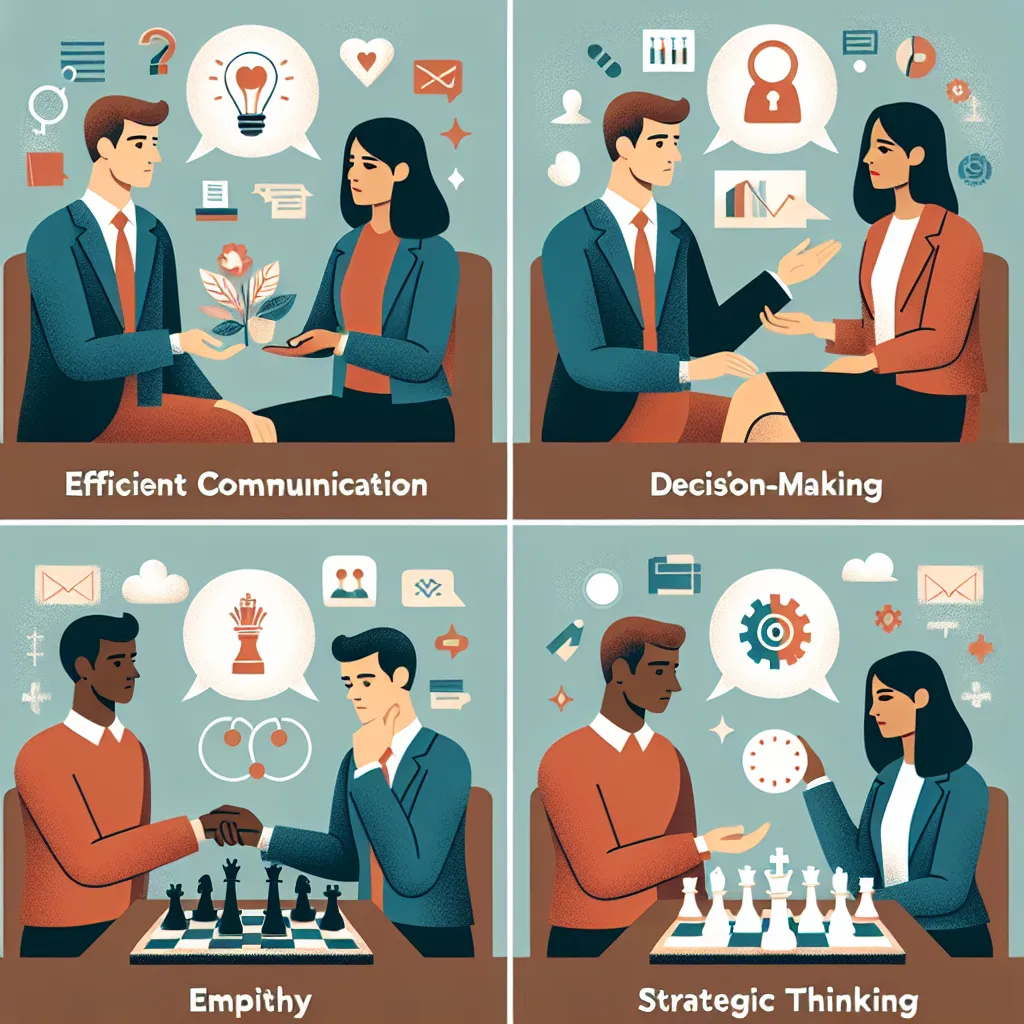Leadership experience is a crucial aspect that many employers look for in potential candidates. Whether you’re interviewing for a managerial position or discussing your career growth, knowing how to effectively communicate your leadership experience can significantly impact your chances of success. This guide will help you navigate through the process of articulating your leadership skills and experiences during an interview.
Understanding the Importance of Leadership Experience
Leadership experience is not just about holding a title; it’s about the skills you’ve developed, the challenges you’ve overcome, and the impact you’ve made. When interviewers ask about your leadership experience, they’re looking to understand your ability to guide, motivate, and influence others towards a common goal.
What Interviewers Are Looking For
Interviewers assess various aspects of your leadership experience:
- Decision-making skills
- Team management abilities
- Problem-solving capabilities
- Communication effectiveness
- Adaptability and flexibility
- Vision and strategic thinking
Understanding these aspects will help you frame your responses more effectively.
 Leadership Interview
Leadership Interview
Structuring Your Responses
When talking about your leadership experience, it’s essential to structure your answers in a clear and impactful way. The STAR method (Situation, Task, Action, Result) is an excellent framework to use:
- Situation: Set the context for your leadership experience.
- Task: Explain the responsibility you had.
- Action: Describe the specific actions you took as a leader.
- Result: Share the outcomes and what you learned.
Example Response Using STAR Method
“In my previous role as a project manager at XYZ Corp, I was tasked with leading a team of five to complete a critical software upgrade (Situation/Task). I organized the team into specialized sub-groups, established clear communication channels, and set up regular check-ins to monitor progress (Action). As a result, we completed the upgrade two weeks ahead of schedule, which increased our client satisfaction rate by 15% (Result).”
Key Areas to Highlight
When discussing your leadership experience, focus on these key areas:
1. Vision and Goal Setting
Explain how you set clear objectives for your team and aligned them with the organization’s goals.
Example: “I implemented a quarterly goal-setting process that increased team productivity by 20% and ensured our projects aligned with the company’s long-term vision.”
2. Team Development
Highlight how you’ve helped your team members grow and improve their skills.
Example: “I initiated a mentorship program within my department, which led to a 30% increase in internal promotions over the following year.”
3. Conflict Resolution
Discuss how you’ve handled disagreements or conflicts within your team.
Example: “When two team members had differing opinions on project direction, I facilitated a discussion that not only resolved the conflict but also led to an innovative solution that improved our final product.”
4. Adaptability
Showcase your ability to lead through change and uncertainty.
Example: “During the sudden shift to remote work, I quickly implemented new communication tools and workflows, maintaining our team’s productivity and even increasing it by 10%.”
5. Innovation and Creativity
Demonstrate how you’ve encouraged and implemented new ideas.
Example: “I established an ‘innovation hour’ every week, where team members could present new ideas. This led to the development of a feature that became one of our product’s main selling points.”
Common Mistakes to Avoid
When discussing your leadership experience, be careful to avoid these common pitfalls:
- Being too vague: Always provide specific examples and metrics.
- Focusing only on successes: Discuss challenges you’ve faced and how you overcame them.
- Neglecting the ‘we’ factor: While highlighting your role, acknowledge your team’s contributions.
- Overusing jargon: Keep your language clear and accessible.
- Failing to show growth: Demonstrate how you’ve learned and improved as a leader over time.
Follow-up Questions and How to Answer Them
Be prepared for these common follow-up questions:
-
Q: “How do you motivate your team members?”
A: “I believe in understanding each team member’s individual goals and aligning them with our team objectives. I also regularly recognize and celebrate both small wins and major achievements.” -
Q: “Can you describe a time when you had to make a difficult decision as a leader?”
A: “In my last role, I had to decide whether to delay a product launch or release with known issues. I gathered input from all stakeholders, weighed the pros and cons, and ultimately decided to delay. This decision, while difficult, resulted in a much more successful launch and positive customer feedback.” -
Q: “How do you handle underperforming team members?”
A: “I start by having an open conversation to understand the root cause of the underperformance. Then, I work with the team member to create a performance improvement plan with clear goals and regular check-ins.” -
Q: “What’s your approach to delegating tasks?”
A: “I assess each team member’s strengths and areas for growth. I delegate tasks that not only align with their skills but also provide opportunities for development. I ensure clear communication of expectations and provide support as needed.” -
Q: “How do you foster innovation within your team?”
A: “I create an environment where all ideas are welcome. I encourage brainstorming sessions, provide resources for experimentation, and celebrate both successes and learning experiences from failures.”
 Leadership Skills
Leadership Skills
Conclusion
Effectively communicating your leadership experience is a valuable skill that can set you apart in interviews and career discussions. By focusing on specific examples, using the STAR method, and highlighting key leadership areas, you can paint a compelling picture of your capabilities as a leader. Remember to be authentic, acknowledge both successes and learning experiences, and always tie your experiences back to how they can benefit your potential employer.
As you prepare for your next interview, practice articulating your leadership experiences using the strategies outlined in this guide. With preparation and confidence, you’ll be well-equipped to showcase your leadership skills and make a lasting impression.
For more interview tips and career advice, check out our related articles on how to talk about your accomplishments in English and how to talk about teamwork in an interview.




